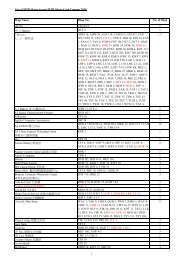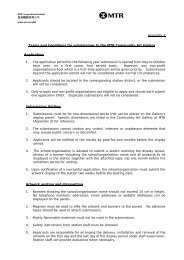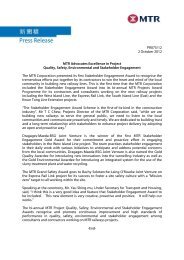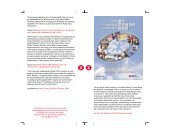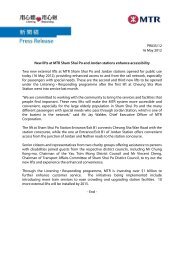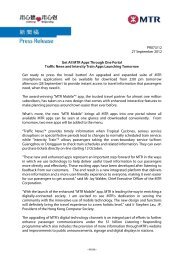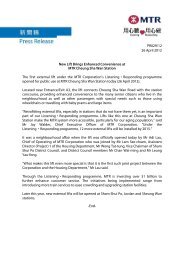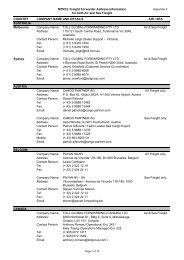sustainabilityreport2003.pdf
sustainabilityreport2003.pdf
sustainabilityreport2003.pdf
Create successful ePaper yourself
Turn your PDF publications into a flip-book with our unique Google optimized e-Paper software.
3.4.1 The Board<br />
Role<br />
The overall management of the Company’s business is vested in the Board of<br />
Directors. Pursuant to the Company’s Articles of Association and the<br />
Protocol adopted by the Board of Directors, the Board of Directors has<br />
delegated the day-to-day management of the Company’s business to the<br />
Executive Directorate, and focuses its attention on matters affecting the<br />
Company’s overall strategic policies, finances and shareholders. These<br />
include financial statements, dividend policy, significant changes in accounting<br />
policy, the annual operating budget, certain material contracts, strategies for<br />
future growth, major financing arrangements and major investments, risk<br />
management strategy, treasury policies and fare structures.<br />
The Board has established three Board committees, being the Nominations<br />
Committee, Audit Committee and Remuneration Committee. Each of these<br />
committees has defined written terms of reference. These committees<br />
comprise non-executive directors who have been invited to serve as members.<br />
Their independent and objective views on various aspects of how MTR is<br />
governed provide proper control and ensure that MTR continues to achieve<br />
the high standards expected of a major listed company. Further information on<br />
the Board committees is available in the MTR Corporation Annual Report<br />
2003 on pages 45 – 47.<br />
The Company takes care to ensure the Board is in a position to exercise its<br />
powers in an informed manner. The Board of Directors meets regularly and<br />
members of the Board receive information between meetings about<br />
developments in the Company’s business. All members of the Board of<br />
Directors have full and timely access to relevant information and may take<br />
independent professional advice, if necessary. The Board of Directors held<br />
12 meetings in 2003 and the average attendance rate was 85%. The<br />
Corporate Sustainability Report is reviewed at a full Board meeting at least<br />
once a year. This occurred last in May 2004.<br />
Composition<br />
The Board of Directors announced in April 2003 to split the roles of the<br />
Chairman and Chief Executive Officer, after Mr. Jack So’s contract as<br />
Chairman and Chief Executive expired during 2003. In addition, majority of<br />
the Board Members are non-executive directors. The non-executive<br />
members of the Board bring a wide range of business and financial<br />
experience to the Board.<br />
Appointments and Re-elections<br />
A person may be appointed as a Board member at any time either by the<br />
shareholders in a general meeting or by the Board upon the recommendations<br />
of the Nominations Committee. Board members who are appointed by the<br />
Board must retire from office at the first Annual General Meeting (“AGM”) after<br />
their appointment. In either case, the members so elected and appointed are<br />
eligible for re-election and re-appointment.<br />
MTR CORPORATION SUSTAINABILITY REPORT 2003<br />
8



